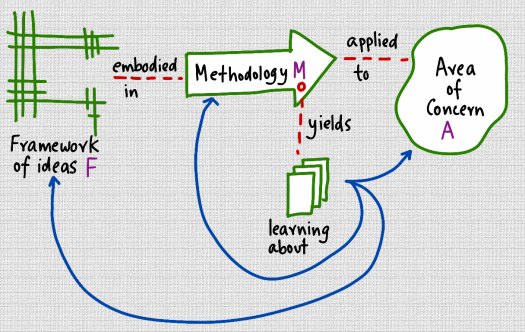What’s the difference between a plan and a novel?
We all make plans - from planning a trip to setting out a marketing strategy for the next five years.
There are many moving parts in a business environment - from internal capabilities, dynamics and politics to external influences like regulation and social transformation.
What differentiates one kind of plan in such a dynamic environment from another?
Is it success - if a plan succeeds is it a good one?
Or is there something about the nature of the plan itself - does a good plan have a particular architecture?
Take marketing on the internet, for example.
Search engine optimisation or SEO is something that many people try and sell - ways to manipulate search engines into ranking sites above others - and it was popular in the early days of the web.
So, is that something that we should do now?
Looking at Google trends - perhaps not. Interest in the term has steadily dropped over time as search engines have become smarter, using semantic analysis and tracking to provide hyper-personalised content.
SEO these days is more about making it easier for the engines to understand what we do rather than tricking them.
A plan based on taking a shortcut or tricking the system may work for a short while.
It can then form the basis of a story, which can be used to sell the plan to others - but it's unlikely that the results will be reproducible to the same extent.
And that's the operative word - what distinguishes a plan from a novel is that the former is designed to produce reproducible results while the latter is a narrative of what once was and what might be.
The picture above is from Peter Checkland and Sue Holwell's book Information, Systems and Information Systems: Making Sense of the field and sets out the basic architecture of a research process - something that can be generalised to much of business.
We start with a framework of ideas - things we believe about our environment.
Taking the marketing process again as an example - these might include the importance of video, a belief in the process by which concepts go viral and the extent to which elements of the work can be outsourced.
The standard process is to them come up with a strategy, a plan and then apply it to an area of concern A - the sales process or pipeline management.
Directors set targets, managers review progress and the standard process rumbles on. Perhaps they hit targets, perhaps not - that's not really important.
What's important is the bits that are missing.
A set of ideas by themselves are just opinions. What makes them useful is setting out, in advance, the methodology that underpins our strategy and plans.
Our objective is to cause a change for the better in the area of concern that we are looking at.
Continuing with the marketing example - we may be able to see and measure the change in a metric like sales - but that is an output of the process.
What's important is that having the intellectual structure in place - a framework F, methodology M and an application area A - then lets us reflect and learn about the system we have put in place.
It's the learning that matters - and that's what helps us adjust and refine our plan and create an approach that produces predictable results.
And this is perhaps the biggest thing we miss when we think about a plan in the narrow sense of having a goal or target and define success as hitting it and failure as missing it.
The journey we take and the lessons we learn are just as important - if not more so.
We often learn more from failure than we do from success.


Vote exchange site https://mysteemup.club